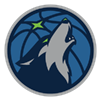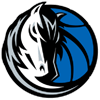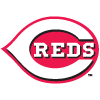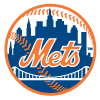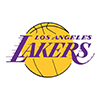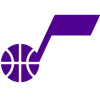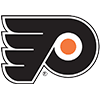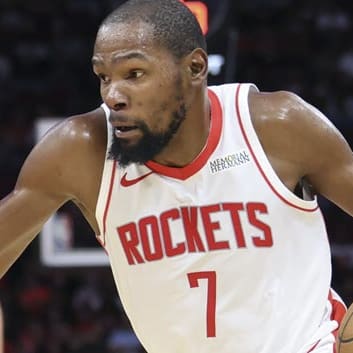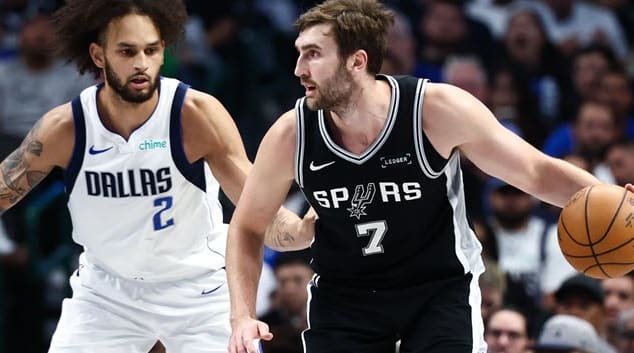With just under a week remaining until the Feb. 20 trade deadline, the rumor mill has been curiously quiet. Maybe the teams working on deals have gone into double-secret stealth mode, and they're waiting to drop a shocker like "Deron Williams to the Nets" on us. Or maybe all the general managers are too busy clearing snow and ice from their driveways to even think about deals.
Or maybe there just isn't that much going on.
Zach Lowe of Grantland.com wrote an excellent breakdown of the factors that could make this year's deadline the quietest in some time. Long story short:
- Most of the teams that are usually willing to deal draft picks already have - the Knicks, for example, can't deal a first-rounder before 2018.
- The new, more punitive luxury tax has made teams more cautious about signing long-term, big money deals. That has made big expiring contracts a bit less valuable; if you don't have a big, ugly salary to clear, you don't need to deal for a big expiring.
- Players on rookie contracts are very hard to trade because, comparatively speaking, they make very little money. It's tough to trade any player on a rookie deal for a veteran and have salaries match.
Then there's the problem of expectations. Many of the most prominent players on the trading block - Pau Gasol, Evan Turner, Kyle Lowry and Ben Gordon, for example - will be free agents after this season. Most are extremely hesitant
With just under a week remaining until the Feb. 20 trade deadline, the rumor mill has been curiously quiet. Maybe the teams working on deals have gone into double-secret stealth mode, and they're waiting to drop a shocker like "Deron Williams to the Nets" on us. Or maybe all the general managers are too busy clearing snow and ice from their driveways to even think about deals.
Or maybe there just isn't that much going on.
Zach Lowe of Grantland.com wrote an excellent breakdown of the factors that could make this year's deadline the quietest in some time. Long story short:
- Most of the teams that are usually willing to deal draft picks already have - the Knicks, for example, can't deal a first-rounder before 2018.
- The new, more punitive luxury tax has made teams more cautious about signing long-term, big money deals. That has made big expiring contracts a bit less valuable; if you don't have a big, ugly salary to clear, you don't need to deal for a big expiring.
- Players on rookie contracts are very hard to trade because, comparatively speaking, they make very little money. It's tough to trade any player on a rookie deal for a veteran and have salaries match.
Then there's the problem of expectations. Many of the most prominent players on the trading block - Pau Gasol, Evan Turner, Kyle Lowry and Ben Gordon, for example - will be free agents after this season. Most are extremely hesitant to give up a first-round pick - or any asset with real value - for a player that will almost certainly be available this summer.
That doesn't mean all deals are off the table, though, and a couple of unlikely "buyers" could emerge. Charlotte, currently the eighth seed in the East, is reportedly eager to make a playoff appearance and could really use a perimeter scorer to complement Kemba Walker and Al Jefferson. Washington - currently sixth - is in a similar spot.
What Toronto will do is anyone's guess. General manager Masai Ujiri could opt for a long-term approach, trading Lowry for whatever he can get and starting to think about next season. But it's hard to do that when you're leading the Atlantic Division and in line for the third seed in the East. So it's fitting that the Raptors figure into one of the more intriguing deadline rumors saying they may be interested in acquiring Luol Deng from the Cavaliers.
Cleveland's acquisition of Deng obviously hasn't worked out as hoped. The team is imploding, the general manager was booted and the coach could be next out the door; Deng will buy a summer house in Chernobyl before he re-signs with the Cavs. Deng can be traded again this season, but due to an obscure NBA rule, he cannot be combined with any other player in a second deal.
Of course, a trade isn't the only way to shake up a team. We've already seen the disappointing Cavaliers dump general manager Chris Grant and the Pistons fire coach Maurice Cheeks. It seems unfair to blame Cheeks for the Pistons' troubles - his team has a major structural defect. With a frontcourt of Andre Drummond, Greg Monroe and Josh Smith, Cheeks was more or less forced to play Smith as his nominal small forward. Problem is, that assignment encourages Smith to do what he's worst at - floating out on the perimeter and jacking up threes. He's averaging 3.5 attempts from long-range this season and hitting at a cover-your-eyes bad 23.1 percent clip. The fact that the Pistons don't really have a space-the-floor guy also hurts Dumars' other big offseason acquisition, Brandon Jennings, who is at his best when he's able to break down a defense with the dribble and then kick to an open shooter. The Pistons really should be active at the deadline, trying to flip Monroe for a shooter that can play out on the wing, but one has to wonder whether Dumars will be allowed to make another franchise-altering decision or if he's on his way out as well.
Picks for the Week:
Tristan Thompson (70%): Seems like we were just saying that Thompson doesn't deserve to be lumped together with some of ousted Cleveland general manager Chris Grant's questionable personnel moves. In his last two games, lined up primarily at center with Anderson Varejao unavailable, Thompson averaged over 20 points and 14 rebounds. The Cavs have been shopping Varejao for as long as I can remember; don't be surprised if Thompson's move to the middle becomes permanent soon.
Taj Gibson (57%) - Has quietly developed into a very capable scorer, which adds a dimension to his well-established defense/rebounding profile. And Bulls coach Tom Thibodeau has said Gibson will continue to log starter's minutes despite Carlos Boozer's return from injury.
John Henson (53%) - Should see a significant boost in playing time while Larry Sanders is sidelined at least six weeks with an orbital fracture. Henson is dealing with an injury of his own but should be back soon after the All-Star break.
Harrison Barnes (52%) - Barnes has been shaky at best for most of this season, but he put together a nice streak of solid play heading into the break, scoring in double figures in four straight games. Maybe he's finally snapping out of his season-long slump. (Of course, his name has been circulating in a fair number of trade rumors - don't be totally shocked if he's moved before the deadline.)
Kendall Marshall (50%) - Yeah, the Steves - Blake and Nash - are back. Sort of. Marshall is still the Lakers' most reliable play at point guard and likely will be for the remainder of this season.
Alec Burks (23%) - Third-year guard is thriving as a bench scorer for the Jazz - he scored 26 and 24 points off the bench in Utah's final two games before the break.
Brian Roberts (15%) - Has scored in double-figures in five straight games and should continue to be a good play for as long as Jrue Holiday is out. The Pelicans have been oddly tight-lipped about Holiday's leg injury; there's no official target date for his return, so Roberts should hang on to the starting gig for another couple of weeks at minimum.
Tim Hardaway Jr. (11%) - Iman Shumpert left Wednesday's game with a hip injury, which created an opening for Hardaway to log significant minutes. That could become a regular occurrence if the injury proves to be serious or if Shump is traded, which seems to be a possibility.
James Anderson (8%) - Continues to start for the Sixers and provides a nice scoring boost when he gets hot from long distance. Could end up in an even more prominent role if general manager Sam Hinkie ends up working out a deal involving Evan Turner.
Jimmer Fredette (1%) - Posted a career-best 24 points - and hit 6-of-8 from three - in a win over the Knicks on Wednesday night, a performance that could lead to a more significant role after the break. Of course, it is worth noting that the Knicks' backcourt defense hands out open shots like they're Halloween candy. Jimmer is hardly the first to take advantage of what one Knicks blog calls the Friendly Alliance of Really Terrible Defenders for Opposing Guards (FARTDOG). Protip: if you're playing daily leagues, be sure to stream in at least one guard from that day's Knicks opponent. You can thank me later.
Meyers Leonard (0%) - In the Blazers' first game without Joel Freeland (sprained MCL), Leonard got the call to fill the backup big man role. That could make him a decent play for the next 6-8 weeks, but Thomas Robinson (1%) will also get a look.







